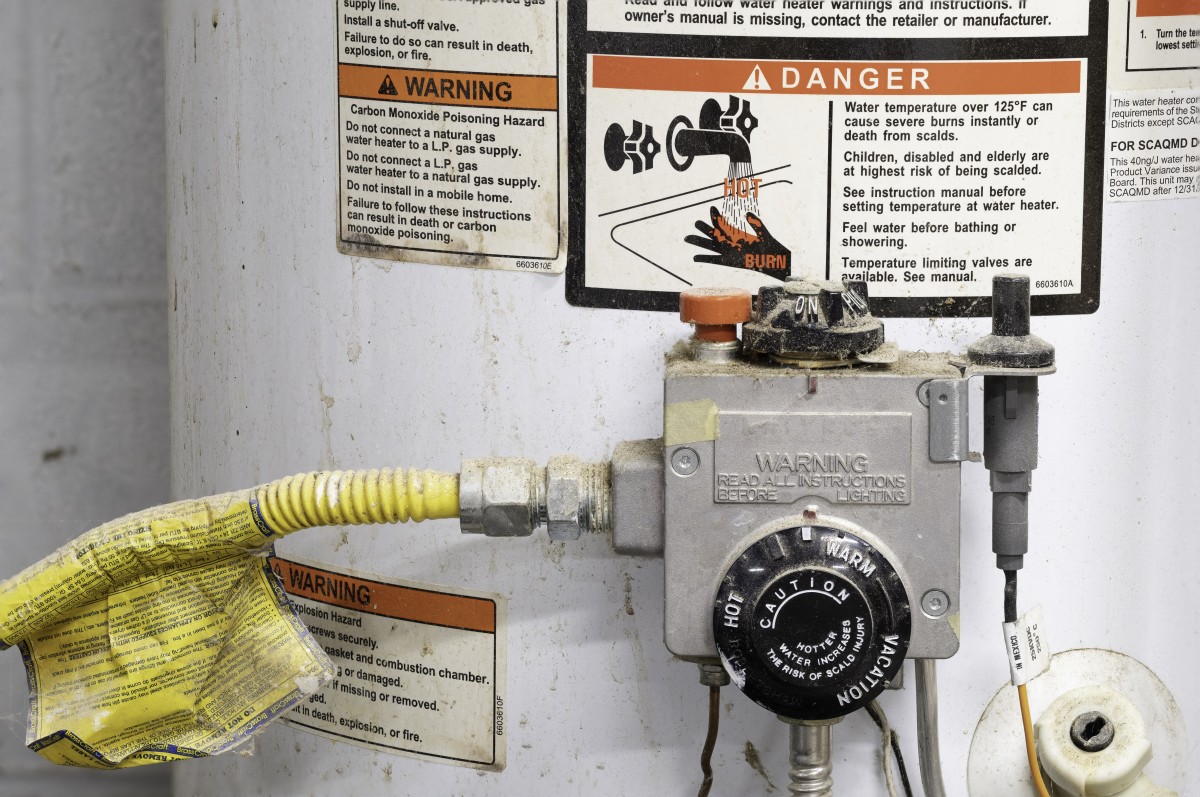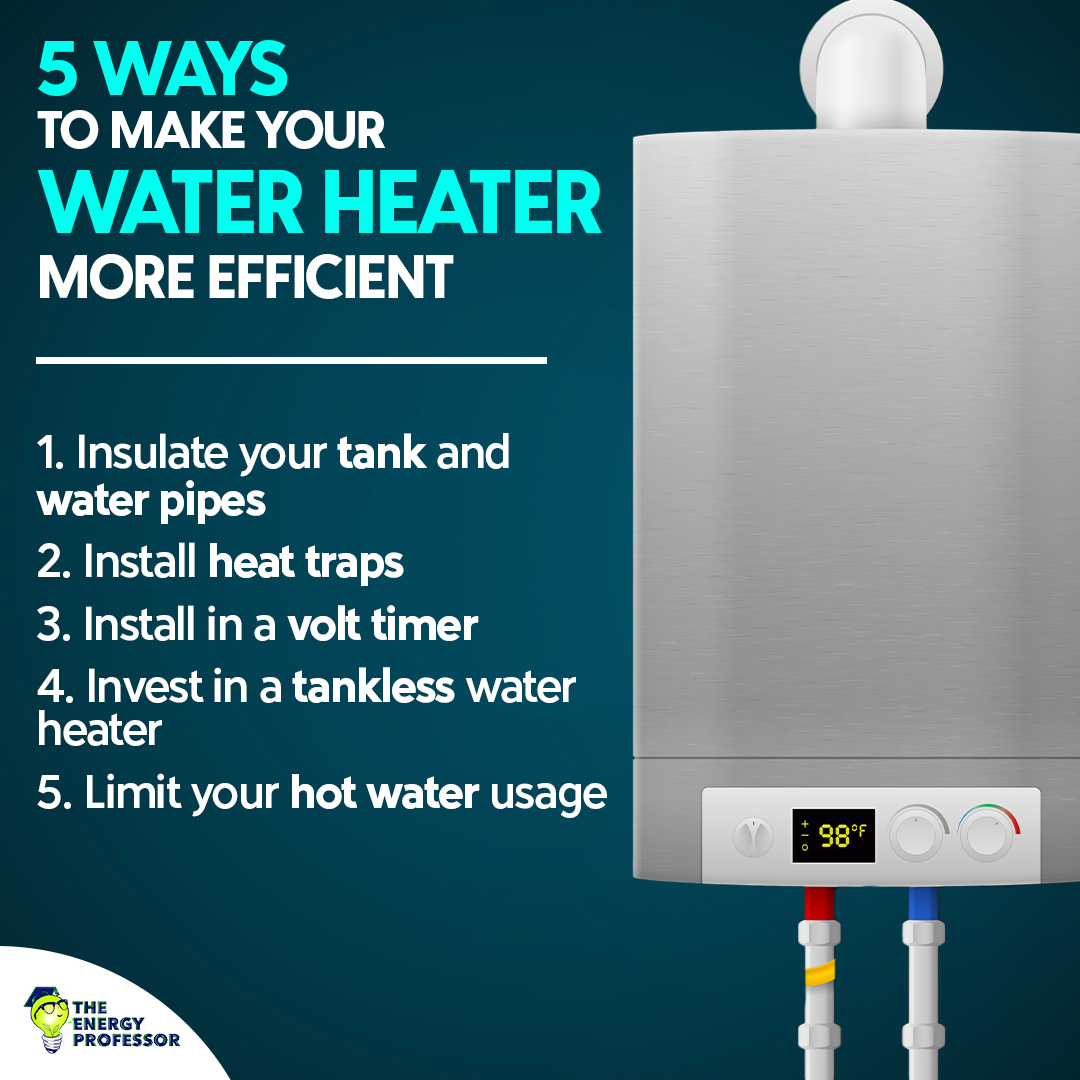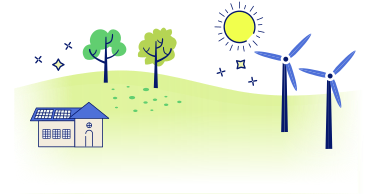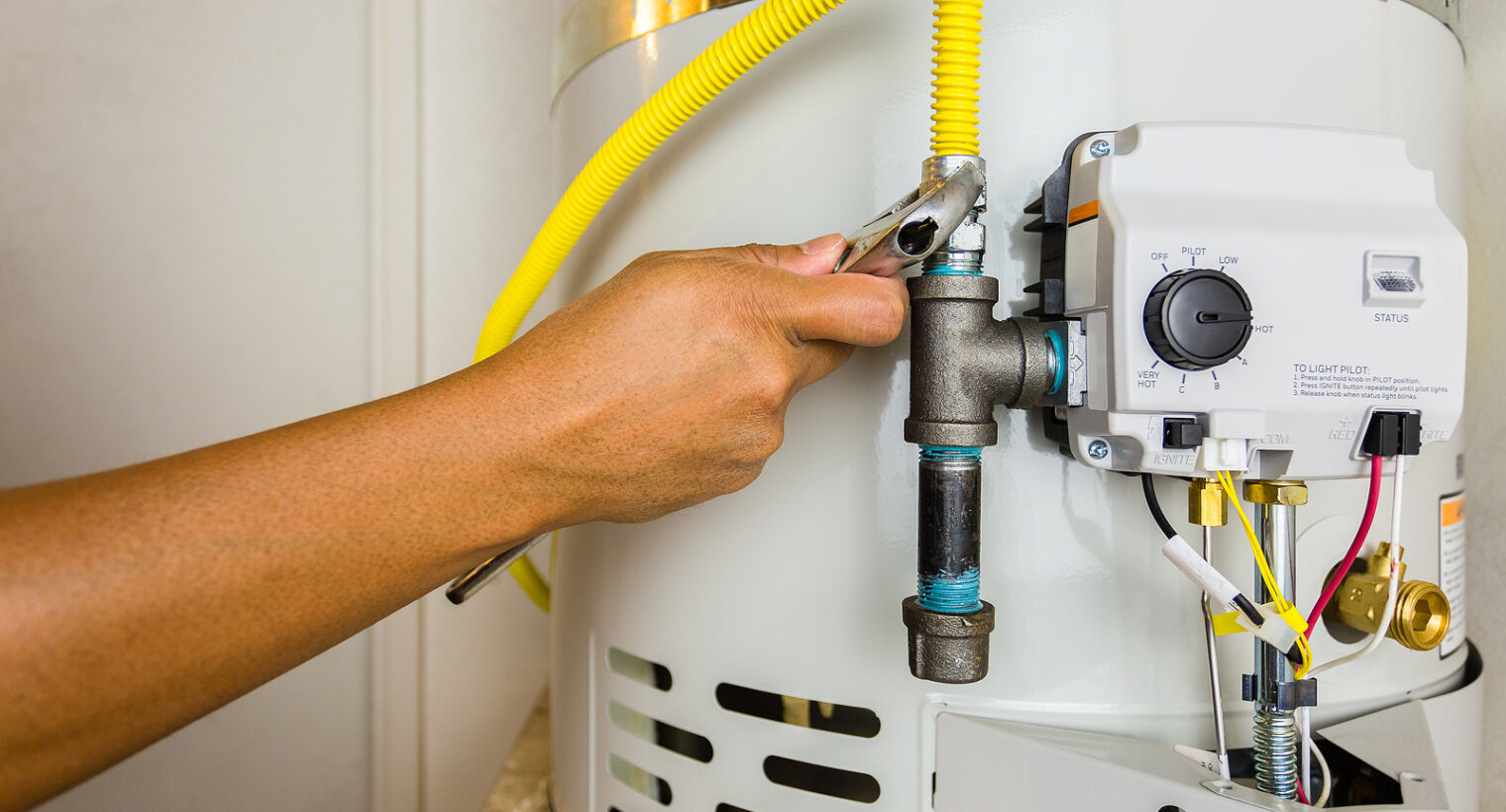This article is your complete guide to maximizing your water heater efficiency. There are many reasons why home owners look to make their water heater energy efficient. The most common reason is to lower your energy bill and save electricity water heater by not using as much energy to heat the water in your tank. Another reason is to live a more environmental friendly lifestyle by lowering your carbon foot print and investing in greener energy. No matter what your reason is, having an efficient hot water heater is a great decision to make.
Water heaters consume the most energy out of any appliance in a household. So much so that according to the US Department of Energy, your hot water heater usage is 18% of your utility bill! That is why we have put this guide together for you. To help you better use hot water heater and make it more efficient!
Here at The Energy Professor, we want to give you the information you need to not only save money on your energy bill, but to also become more energy efficient. We hope find this post helpful! And makes it easier for you to know more about water heater efficiency. Be sure to also check out our one of a kind energy savings calculator!
The Energy Professor Electricity Rate Check Tool
How to Make Your Water Heater Energy Efficient

Finding the correct water heater setting is a crucial first step to take when you’re trying to save money on your energy bill. Not only does setting your tank to lower temperatures help save money, it also makes it a more energy efficiency water heater! The ideal money saving temperature control hot water heater temperature setting is 120 degrees. By lowering your water temperature by only 10 degrees from the factory setting, you can save 3% – 5% on your energy bill. There are other simple things your can do as well as low cost investments to lower your energy costs. Below is a just a small list of practices that can lower costs and make your hot water heater more energy efficient.
Ways to Make your Electric & Gas Water Heater More Efficient – Water Heater Energy Saving Tips
- Lower Your Thermostat
- Insulate Your Tank & Water Pipes
- Install Heat Traps
- Invest in a Tankless Water Heater
- Make Sure You’re Using the Right Sized Water Heater
- Invest in a Tankless Water Heater
- Monitor Your Tank’s Sediment
- Install in a Volt Timer
- Limit Your Hot Water Usage
Turning down hot water heater to save money is a great first step. But if you’ve already done that and are ready to take another great step would be to invest in a tankless water heater. These newer more energy efficient hot water heaters can provide you with more hot water and a savings of up to 40% on your energy bill. As opposed to tank water heaters, the newer tankless versions heat the water as you use it. So any time you turn the hot tap on and off, the water heating system will also turn on and off.
Related Post: Average Monthly Gas Bill in the US
Old vs. New Water Heaters and Efficiency
In the modern era of energy consciousness, understanding the hot water heater efficiency of our homes is crucial. The comparison between old and new water heaters unveils striking differences in how they perform. Finding the best energy-efficient water heater should lead homeowners to consider the differences between old and new systems. The transformation from traditional heaters to modern ones is not just a technological shift. But it is also an essential step in becoming more responsible energy consumers. Let’s explore these differences and what they mean for those looking to find the most efficient way to heat water.
Old Water Heaters
- Energy Consumption: Older models typically consume more energy, leading to decreased hot water heater efficiency.
- Challenges in Optimization: Traditional heaters are often restricted in energy-saving capabilities, hindering the path to the best energy-efficient water heater.
- Limited Control: The inability to adjust the thermostat or other settings may further decrease efficiency.
New Water Heaters
- Energy Star Rating: Modern heaters bearing the Energy Star rating are key contenders for the best energy-efficient water heater, meeting strict government guidelines.
- On-Demand Heating: New tankless systems only heat water when needed, which epitomizes hot water heater efficiency.
- Smart Control: Sophisticated technology allows you to adjust the temperature to your needs. This can prevent the issue of a water heater using too much electricity.
Old water heaters tend to lack the technology for energy saving. They also often contribute to the problem of a water heater using too much electricity. Contrastingly, new water heaters are often designed with energy saving at the forefront. This results in the most efficient way to heat water. Investing in a new energy-saving water heater or optimizing your current one, can bring you closer to the goal of reducing both environmental impact and utility costs.
Related Post: Energy Star Rated Water Heaters
Gas Water Heater vs. Electric Water Heater: Unlocking Efficiency

The choice between gas and electric water heaters goes beyond just heating water. It’s about how to get more hot water in an energy-efficient way. In this section, we’ll explore gas and electric heaters. Focusing on energy saving water heater solutions like how to get more hot water out of your water heater, and whether turning off the water heater can save money. Gas water heaters stand out for their rapid heating and ability to consistently use hot water heater capabilities. While electric water heaters are favored for their clean energy use and ability to generate consistent hot water.
Gas Water Heaters
- Quick Heating: Gas models provide an efficient way to get more hot water, especially during peak times.
- Energy Costs: Often considered an energy saving water heater, gas units can be more economical. This will depend on local fuel costs.
- Turn-Off Considerations: While turning off a gas heater might save some fuel, the savings can be minimal if not done during extended periods of non-use.
Electric Water Heaters
- Energy Efficiency: These models are known for converting nearly all energy into heat. Promoting how to get more hot water out of your water heater efficiently.
- Environmental Impact: The clean operation of electric heaters aligns well with energy-saving goals but may vary based on the electricity source.
- Saving Money by Turning Off: Does turning off the water heater save money? With electric models, the answer may be yes, especially if it’s off during extended periods of non-use.
Whether you opt for the rapid heating of gas or the eco-friendly efficiency of electric, understanding these key aspects will help you make a wise decision that aligns with both your hot water needs and energy-saving objectives. By grasping the unique attributes of gas and electric water heaters, homeowners can empower themselves to use hot water heater technology to its fullest potential. All while maximizing both comfort and conservation.
Related Post: What is Renewable Energy?
How to Get More Hot Water from Water Heater: Efficiency and Energy-Saving Solutions

The challenge of how to get more hot water from a water heater is one that resonates with many homeowners. From running out of hot water during morning showers or while filling a relaxing bath. The solutions lie in understanding the efficiency of water heaters and adopting energy-saving hot water heater strategies. Through small adjustments or an upgrade to an energy-saving hot water heater, the solutions are within reach. Let’s explore the pathways to achieve this balance.
Enhancing the Efficiency of Water Heaters
- Upgrade to a Water Heater Efficient Model: Opt for a system designed with energy efficiency in mind to get more hot water without sacrificing sustainability.
- Regular Maintenance: Keeping your water heater free from sediment and in good repair can greatly improve the efficiency of water heaters.
Temperature Optimization
- Adjust the Thermostat: A slight increase in temperature may be all that’s needed for how to get more hot water from your water heater.
- Insulate for Efficiency: By insulating the tank, you make your water heater efficient in retaining heat.
Implement Energy Saving Hot Water Heater Solutions
- Invest in an Energy-Saving Hot Water Heater: On-demand or tankless options provide continuous hot water while conserving energy.
- Water-Saving Fixtures: Low-flow fixtures can help to make your water heater efficient, saving both energy and water.
Smart Use and Scheduling
- Spread Out High-Demand Tasks: By strategically scheduling showers and other tasks, you can make the most of your hot water supply.
- Embrace Energy Saving Hot Water Heater Practices: Consider practices like shorter showers or washing clothes in cold water to conserve hot water.
It’s not merely about getting more hot water; it’s about doing so in a way that aligns with responsible energy consumption. Embracing an energy-saving hot water heater not only elevates comfort but also contributes to a greener, more sustainable home.
Related Post: What is Energy Efficient Landscaping?
Water Heater Efficiency FAQ

Q: What is the Most Efficient way to set your Water Heater?
A: If you’re looking for a short answer, it’s 120 degrees Fahrenheit (about 49 degrees Celsius). Many water heaters are set to 140 degrees F per factory specifications, but lowering the temperature can lead to energy savings of 4% to 22%, and up to $400, according to the Department of Energy.
Q: What is the Best Temperature for a Hot Water Heater to Save Money?
A: What is the recommended temperature for your water tank? The best or optimal temperature for your hot water tank is 120 Fahrenheit or 48 Celsius. This is a temperature that is comfortable and sanitary, yet does not significantly increase your energy costs.
Q: Is it Worth Upgrading Your Water Heater?
A: Yes, it often makes sense to replace an inefficient water heater even if it’s in good shape. The energy savings alone could pay for the new water heater after just a few years, and you’ll be happy knowing that you are dumping fewer pollutants into the air and less money down the drain.
Do you Need Cheaper Electricity?
If you’ve taken the time to understand the information on your bill and discovered you’re paying more than you’d like for your electricity, have you looked around for a cheaper deal? The Energy Professor has a wealth of information on ways to save on your utilities, including details of top deals that could significantly reduce your monthly or quarterly electricity bills.
We hope you found this article helpful! If you are looking for ways to increase the energy efficiency and sustainability in your home be sure to take a look at all of the latest renewable energy options in your area. The Energy Professor helps residential and small business owners find qualified energy suppliers in New York, New Jersey, Pennsylvania, Texas, Ohio, Maryland, Illinois, and Massachusetts.



